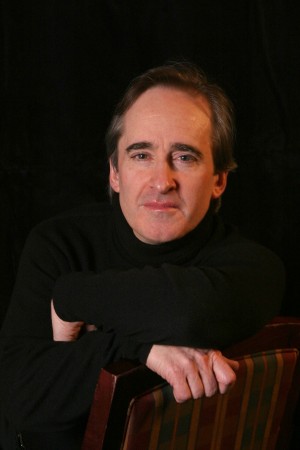Conlon, CSO members excavate chamber rarities at Ravinia
If the Ravinia Festival’s symphonic programs largely stick to the tried and true, the chamber, vocal and opera offerings on the summer schedule offer much greater variety and novelty.
Indeed, for his annual chamber concert with Chicago Symphony Orchestra members Tuesday night, Ravinia music director James Conlon assembled an inventive and even audacious program, which could have been titled “Wagner and his discontents.”
Conlon was at his best as cordial and knowledgeable guide, spicing the evening’s journey from Wagner to Korngold with slides and generous historical commentary. Some Martin Theatre attendees grumbled at the length of Conlon’s spoken disquisitions—which pushed the evening to the two-and-one-half-hour mark—but it’s churlish to kvetch when the background information is conveyed so engagingly, with knowledge and humor.
Wagner’s Siegfried Idyll opened the evening, presented in the original 13-player version, which Wagner famously premiered on the stairs of their home Christmas morning as a birthday gift to his beloved wife, Cosima. Conlon led a flowing, expressive performance, well balanced with notably free rubato. The CSO members were at their considerable best including clarinetist John Bruce Yeh and cellist Daniel Katz with especially tender and sensitive violin playing from Sylvia Kilcullen.
The rest of the program offered all Ravinia premieres. Hanns Eisler wrote Fourteen Ways of Describing the Rain in 1944 as music to run in parallel with Regen (Rain) an enigmatic Dutch film made twelve years earlier. Tuesday night the film was played in conjunction with the live performance directed by Conlon.
The quasi-Expressionist black-and-white images of rainy Amsterdam streets are striking, but wholly overpowered by Eisler’s extraordinary music. Crafted for six players in 12-tone style, Eisler’s score is densely woven yet, as with Alban Berg, vital and communicative. For all its serial strictures, the music is crafted with unerring wit, skill and resourcefulness. Fourteen Ways of Describing the Rain is Eisler’s masterpiece and even counts as one of the high points of 20th-century serialism, a score that deserves to be much better known and more widely performed. The fine playing of the musicians under Conlon’s direction provided the best possible advocacy with the conductor (sans click track) managing to conclude the music almost exactly with the end of the film. Kudos to Conlon for resurrecting this neglected gem.
Knee-slapping humor isn’t the first thing one thinks of when hearing the name Paul Hindemith. Yet the German composer had quite a withering wit as witness his Overture to “The Flying Dutchman” as Sight-read by a Bad Spa Orchestra at 7 a.m. by the Well. The title pretty much says it all, painting a semi-talented string quartet as they scrape their way through the title curtain-raiser. Hindemith’s acerbic smackdown of Wagner is subtler than Mozart’s similarly inspired A Musical Joke and more amusing for that, with string lines veering into acidity until a finale of crunching Ivesian dissonance.
It’s hard to get good musicians to play poorly even when the mistakes are written into the score. A less straight-faced performance might have conveyed more of the musical satire, yet we got the gist in a bizarre work that one is unlikely to hear twice in this lifetime.
The Wagnerian influence is fitful in Erich Wolfgang Korngold’s music though the lineage is palpable in the sumptuous Late Romanticism of his stage works and film scores.
Korngold’s String Sextet, written at age 19 in 1916, is from his prodigious youth when he created some of his greatest and most celebrated works, including the brooding opera Die tote Stadt, which would make him an international name four years later.
The Sextet is a remarkable achievement with assured and sophisticated writing for six voices and a striking depth of expression in the Adagio for a composer still in his teens. Conlon led the players in a worthy, agile performance with violinist Baird Dodge and cellist Katz mining the music’s fin de siècle lyric sweetness while avoiding schmaltz.
Yet overall the performance lacked a certain idiomatic Viennese quality. One wanted a better blended, more lush corporate sonority, as in the lilting waltz of the Intermezzo, with string tone fitfully wiry and lines never quite coalescing into a unified whole.
James Conlon conducts the Chicago Symphony Orchestra in an all-Beethoven program 8 p.m. Thursday night featuring the Egmont Overture, Symphony No. 7 and Piano Concerto No. 4 with Jonathan Biss. ravinia.org
Posted in Uncategorized






Posted Jul 26, 2014 at 10:22 am by M. Friedman
The only discontents Wagner has are the ones whose music is lacking his genius!